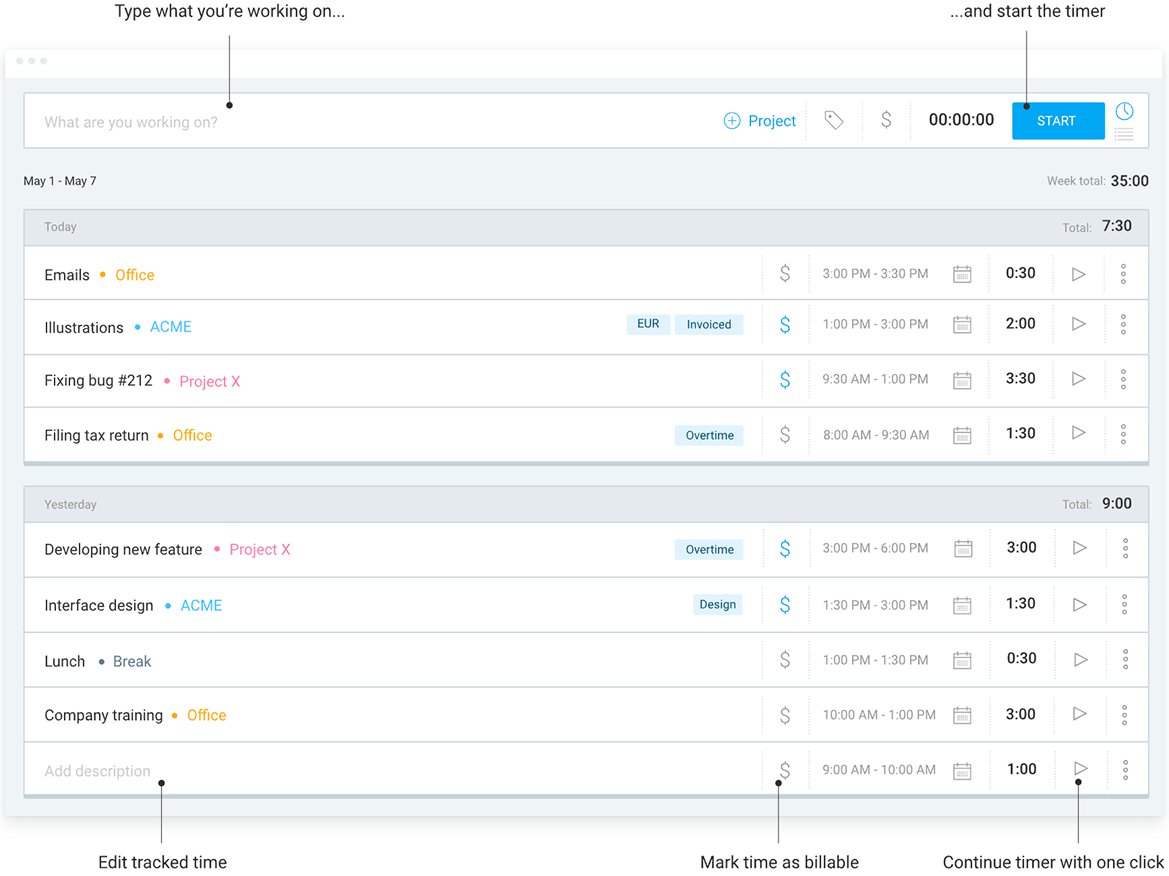Did you know that in the US, you can be fired for any reason (or no reason at all) at any time?
Employment in most US states is ‘at-will,’ meaning an employer can fire an employee for any reason without warning as long as the reason for termination is lawful. For instance, an employer can’t fire an employee for reporting sexual harassment at work.
To help you understand how at-will employment works and your basic rights and limitations under this law, we’ve covered everything you need to know about:
- At-will employment contracts,
- Different law exemptions to the general at-will employment rule,
- States limiting at-will employment,
- Advantages and disadvantages of at-will employment for both employers and employees,
- Reasons an employee may be fired for (including wrongful discharge), and
- Difference between at-will and right-to-work states.
*Note: The information regarding at-will employment laws and regulations by state has been checked and updated for 2025.

- At-will employment means that either the employer or the employee can terminate the employment relationship at any time for any reason except an illegal one.
- Currently, the only US state that doesn’t utilize at-will employment is Montana.
- There are 3 exceptions to the at-will doctrine: public policy, implied contract, and implied covenant of good faith and fair dealing. All at-will states in the US (apart from Florida, Georgia, Louisiana, and Rhode Island) have some form of at-will employment exemption.
- Some examples of wrongful discharge include cases when an employee is fired for reporting illegal activities within the organization or due to discrimination.
- One benefit of at-will employment for employers is the ability to quickly adjust their workforce in response to changing business needs. Conversely, one of the downsides is that it can lead to higher employee turnover.
- One of the advantages of at-will employment for employees is the freedom to leave the company whenever a better job opportunity comes along. On the other hand, one of the disadvantages is the lack of job security.
What is at-will employment?
Employment relations in most US states are considered to be at-will. But what does at-will employment mean?
At-will employment means that an employer has the right to fire an employee:
- At their own convenience,
- For whatever cause (as long as it doesn’t violate state or federal laws), and
- Without providing any prior notice or explanation.
Conversely, an employee can also quit their job at any time without giving prior notice (or any notice at all) or stating their reason for doing so. Since at-will employment goes both ways, both parties won’t face any legal repercussions for the termination of such employment.
At-will employment still offers some flexibility and may include specific contractual terms, allowing employers to adjust the conditions of employment regarding:
- Wages,
- Employee benefits,
- Paid time off, and
- Work schedule.
Employers can also include additional clauses in the employment contract stating the circumstances or situations required for termination of the employment relationship.
Now that you’ve learned what at-will employment is, let’s find out which US states practice at-will employment.
🎓 Interested in learning more about PTO payout laws in the US? Here’s a thorough guide on the topic: PTO Payout Laws by State — Guide for 2025
Are all states in the US at-will?
All US states, including the District of Columbia, are at-will employment states, except for Montana.
According to Montana’s Wrongful Discharge From Employment Act, the employment may be terminated at will only during a probationary period of employment. In other words, once an employee has completed the probationary period, the employer must have good cause for termination.
Although at-will employment is the standard in most US states, some states have further limitations on top of federal laws. To learn more about that, pay attention to the following paragraphs.
What are the exceptions to employment at-will?
The 3 major exceptions to employment at-will are:
- Public policy exemption,
- Implied contract exemption, and
- Implied covenant of good faith and fair dealing exemption.
The exceptions to at-will employment protect both the employer’s and employee’s interests in case a violation occurs.
Let’s explore each of these law exceptions to find out when at-will employment doesn’t apply.
#1: Public policy exemption
In 42 US states, including the District of Columbia, the public policy exception to at-will employment protects employees from getting fired in the following cases:
- Whistleblowing (e.g., reporting illegal activities in the workplace),
- Practicing a statutory right (e.g., filing a workers’ compensation claim for injuries incurred at work or organizing a union),
- Refusing to act against the law (e.g., not complying with an employer’s request to commit perjury at a trial), or
- Acting in the public interest (e.g., joining the National Guard, serving on jury duty, or voting).
Since public policy is an exception to the general rule of at-will employment, employees can’t lose their jobs for disobeying their employer (i.e., refusing to do something illegal). However, they have the right to sue their employer for wrongful termination if they still lose their job.
To be valid, the public policy must be:
- Stated in a state law (e.g., a statute or constitutional provision),
- Long-established at the time of the employee’s dismissal, and
- Clearly defined.
Be that as it may, both employers and employees need to abide by federal and state laws to avoid unlawful at-will employment termination. Understanding these exceptions and their implications is crucial for both parties to ensure fair and legal employment practices.
#2: Implied contract exemption
The implied contract exemption is currently recognized in 37 US states, including the District of Columbia.
According to the Bureau of Labor Statistics (BLS), the implied contract may not be an actual (or explicit) written contract. Instead, the terms under which an employee may be subject to employment termination (or discipline) are usually stated:
- Verbally,
- In the employer’s policy,
- In the new hire handbook, or
- In other written assurances.
When an implied contract exists, the employer may only fire an employee for “just cause.” This means that an employee may be fired for any sufficient reason, such as misconduct.
Furthermore, some employee handbooks may define that an employee has a right to a warning before they can be fired. However, if the procedures and rules of conduct are presented verbally, such an agreement may be difficult to validate due to the lack of documentation.
But, even though it may be challenging to prove that there was a contract in place, an oral implied contract can still be held up in court.
The court will examine additional factors such as:
- Relationship between both parties,
- Employee’s duties,
- Duration of employment,
- Regularity of job promotions,
- Employer’s promises of permanent employment, and
- Whether previous agreements have been made in the company’s policy or handbooks.
#3: Implied covenant of good faith and fair dealing exemption
The implied covenant of good faith and fair dealing exception represents the most significant departure from the norm of at-will employment. This exception was introduced and recognized by the California Supreme Court in 1980, and 10 other states have acknowledged its importance.
So nowadays, the implied covenant of good faith applies to every employment relationship in the 11 US states listed below:
- Alabama,
- Alaska,
- Arizona,
- California,
- Delaware,
- Idaho,
- Massachusetts,
- Montana,
- Nevada,
- Utah, and
- Wyoming.
This exception to at-will employment also states that the employee’s actions and employer’s decisions are subject to “just cause.” Dismissing an employee for just cause means that an employee may only get fired for a reasonable, lawful, and sufficient reason, such as:
- Serious misconduct,
- Habitual negligence,
- Incompetence,
- Rude or disrespectful behavior, or
- Violation of company’s policies and rules.
The exemption further bans an employer from terminating an employee in bad faith or with malice, which includes:
- Making false statements that would damage an employee’s reputation,
- Dismissing an employee to avoid paying for healthcare and retirement benefits,
- Firing an employee to avoid paying a commission (e.g., right before the sale is closed), and others.
All things considered, the implied covenant of good faith and fair dealing suggests that an employer should only terminate an employee in a fair and just manner. If the employer doesn’t comply with the law principle (i.e., if they don’t act in good faith upon dismissal), they might have to give away compensation or additional damages to make up for the emotional distress resulting from the mistreatment.
Employment at-will states table
In the table below, you can:
- Find a list of at-will employment states, and
- See which at-will employment states have the public policy, the implied covenant of good faith and fair dealing, and the implied contract exemptions.
| State | Public policy exemption | Implied covenant of good faith and fair dealing exemption | Implied contract exemption |
|---|---|---|---|
| Alabama | ❌ | ✅ | ✅ |
| Alaska | ✅ | ✅ | ✅ |
| Arizona | ✅ | ✅ | ✅ |
| Arkansas | ✅ | ❌ | ✅ |
| California | ✅ | ✅ | ✅ |
| Colorado | ✅ | ❌ | ✅ |
| Connecticut | ✅ | ❌ | ✅ |
| Delaware | ✅ | ✅ | ❌ |
| District of Columbia | ✅ | ❌ | ✅ |
| Florida | ❌ | ❌ | ❌ |
| Georgia | ❌ | ❌ | ❌ |
| Hawaii | ✅ | ❌ | ✅ |
| Idaho | ✅ | ✅ | ✅ |
| Illinois | ✅ | ❌ | ✅ |
| Indiana | ✅ | ❌ | ❌ |
| Iowa | ✅ | ❌ | ✅ |
| Kansas | ✅ | ❌ | ✅ |
| Kentucky | ✅ | ❌ | ✅ |
| Louisiana | ❌ | ❌ | ❌ |
| Maine | ❌ | ❌ | ✅ |
| Maryland | ✅ | ❌ | ✅ |
| Massachusetts | ✅ | ✅ | ❌ |
| Michigan | ✅ | ❌ | ✅ |
| Minnesota | ✅ | ❌ | ✅ |
| Mississippi | ✅ | ❌ | ✅ |
| Missouri | ✅ | ❌ | ❌ |
| Montana* | ✅ | ✅ | ❌ |
| Nebraska | ❌ | ❌ | ✅ |
| Nevada | ✅ | ✅ | ✅ |
| New Hampshire | ✅ | ❌ | ✅ |
| New Jersey | ✅ | ❌ | ✅ |
| New Mexico | ✅ | ❌ | ✅ |
| New York | ❌ | ❌ | ✅ |
| North Carolina | ✅ | ❌ | ❌ |
| North Dakota | ✅ | ❌ | ✅ |
| Ohio | ✅ | ❌ | ✅ |
| Oklahoma | ✅ | ❌ | ✅ |
| Oregon | ✅ | ❌ | ✅ |
| Pennsylvania | ✅ | ❌ | ❌ |
| Rhode Island | ❌ | ❌ | ❌ |
| South Carolina | ✅ | ❌ | ✅ |
| South Dakota | ✅ | ❌ | ✅ |
| Tennessee | ✅ | ❌ | ✅ |
| Texas | ✅ | ❌ | ❌ |
| Utah | ✅ | ✅ | ✅ |
| Vermont | ✅ | ❌ | ✅ |
| Virginia | ✅ | ❌ | ❌ |
| Washington | ✅ | ❌ | ✅ |
| West Virginia | ✅ | ❌ | ✅ |
| Wisconsin | ✅ | ❌ | ✅ |
| Wyoming | ✅ | ✅ | ✅ |
*In Montana, at-will employment laws apply only during the probationary period of employment.
🎓 Check out what else is regulated by the rule of law in your state: State Labor Laws Guides
FAQs about at-will employment
The section below contains a list of the most commonly asked questions and answers regarding at-will employment in the US.
How many at-will states are there in the US?
Since this is crucial information, it doesn’t hurt to repeat it: All US states, including the District of Columbia, follow the at-will employment principle, except for Montana. Thus, 49 out of 50 US states (plus the District of Columbia) are at-will.
As stated earlier in the guide, certain states do place specific limitations on at-will employment.
What is a wrongful termination?
Wrongful termination occurs when an employer fires an employee for an illegal reason.
The employment termination is considered wrongful if the employee performs any of the following actions:
- Reports a violation of safety protocol in the workplace,
- Reports illegal workplace activities (such as accounting fraud),
- Refuses to act against a federal or state law,
- Takes time off from work to testify in court,
- Files a workers’ compensation claim,
- Discloses an employer’s practice of refusing to pay an employee’s sales commission, and more.
What are the reasons an employee may be fired for?
In the US, employers have the legal right to fire at-will employees without cause. Firing without cause means that there was no employee misconduct before the termination.
In fact, employers can terminate an at-will employee for no reason at all without facing any disciplinary penalties (unless in case of wrongful discharge).
There are numerous legally acceptable situations when an at-will employee may be discharged from their position, including:
- Economic downturn,
- Cost-reduction,
- Poor work performance,
- Company restructuring,
- Misuse of company property and resources,
- Violating company policy,
- Drug or alcohol possession at work, and more.
What are the advantages of at-will employment?
At-will employment offers several advantages both for employers and employees.
Below, we’ve listed some of the advantages that positively affect the employer:
- The employer has more flexibility in managing their workforce (e.g., they may fire the employee at their own convenience — unless in the above-mentioned illegal cases),
- The employer can change the employment terms to meet the company’s needs (e.g., changing the employee’s job duties, salary, and benefits), and
- The employer can reduce workforce costs in difficult economic times (e.g., cutting staff costs when there’s lower demand for the company’s goods or services).
At-will employment also comes with several advantages for employees, such as:
- The employee has higher career freedom (i.e., they may leave the company whenever a better job offer comes up),
- The employee can be rewarded based on their work performance despite the duration of employment (unlike collective bargaining agreements, which allow seniority-based promotion), and
- The employee is still guaranteed job security in certain situations (e.g., they can’t get fired for reporting any illegal activities conducted by the company).
What are the disadvantages of at-will employment?
Here are some disadvantages of at-will employment for employers:
- Higher employee turnover (employees suddenly quitting without prior warning makes it more challenging to find a replacement),
- Difficulty in attracting new hires (due to the lack of job security and long-term benefits), and
- More workplace conflict (employees may feel anxious knowing they can lose their job at any time, which can affect their mood and thus work relationships).
Taking a job as an at-will employee is also associated with several disadvantages, including:
- Less job security (employees constantly feel stressed about losing their job),
- Less employee protection (employees may only be protected by a public policy or other exemption), and
- Less teamwork (team collaboration may be challenging because everyone works for their own benefit, instead of the group’s).
What is the difference between at-will and right-to-work states?
As stated above, in employment-at-will states, both the employer and employee can terminate the employment:
- At any time,
- For any/no reason, and
- Without any consequences.
On the other hand, a right-to-work state is a state where employees can’t be obliged to engage in labor organizing and union membership as a condition of employment. Simply put, they’re allowed to work for an employer without joining the union or a collective bargaining unit. Their decision to be or not to be a union member can’t in any way affect their employment conditions.
To conclude, “right-to-work” concerns the employee’s choice regarding union membership and dues, while “at-will employment” focuses on the employment relationship.
🎓 To learn which states have and haven’t passed the right-to-work law, read the following resource: US Right-To-Work States — Guide for 2025
Use Clockify by CAKE.com to help yourself stay compliant with timekeeping laws
If your business operates in the US and is subject to the Fair Labor Standards Act (FLSA), you must follow FLSA requirements to keep your business legally sound.
Since FLSA requirements include maintaining accurate records of employee hours worked, the easiest way to ensure compliance is to use a time tracker such as Clockify.
With Clockify by CAKE.com, you can:
- Track your employees’ time spent on tasks and projects,
- Approve employee timesheets,
- Manage employee time off, and
- Get instant reports on employees’ tracked time.
To track time with Clockify, employees can record their work hours via timer by starting/stopping the timer as soon as they begin/finish their workday. Once employees stop the timer, a new time entry is added to their list of time entries.

All your employees’ time entries are securely stored in Clockify, where you can access them whenever you want and edit them if needed.
Clockify by CAKE.com also lets you track employee overtime, which can help you determine employee overtime pay. This way, you can properly compensate your workers and comply with FLSA overtime pay rules.
Moreover, Clockify allows you to generate detailed time reports for the current week, last week, last month, last year, etc. You can filter data in reports by project, task, team, client, or description.

Lastly, you can also export reports in a PDF, CSV, or Excel format for easier payroll processing.
Track employee hours easily and accurately and keep all the important information in one place.
Sign up for Clockify by CAKE.com
Conclusion/Disclaimer
We hope our comprehensive at-will employment states guide has helped you better understand at-will employment in the United States.
For additional information, check out the links we’ve provided, as most of them lead you to official government websites and other relevant sources.
Please note that this guide was written in Q1 of 2025, so any forthcoming adjustments may be omitted from this guide.
The material included in this guide is provided for informational purposes only and should not be interpreted as legal advice on any subject matter. We strongly advise you to reach out to the relevant institutions and/or certified representatives before bringing a case to court.
Clockify is not responsible for any losses or risks incurred, should this guide be used without further legal guidance.
How we reviewed this post: Our writers & editors monitor the posts and update them when new information becomes available, to keep them fresh and relevant. Updated: February 21, 2025
Updated: February 21, 2025 
